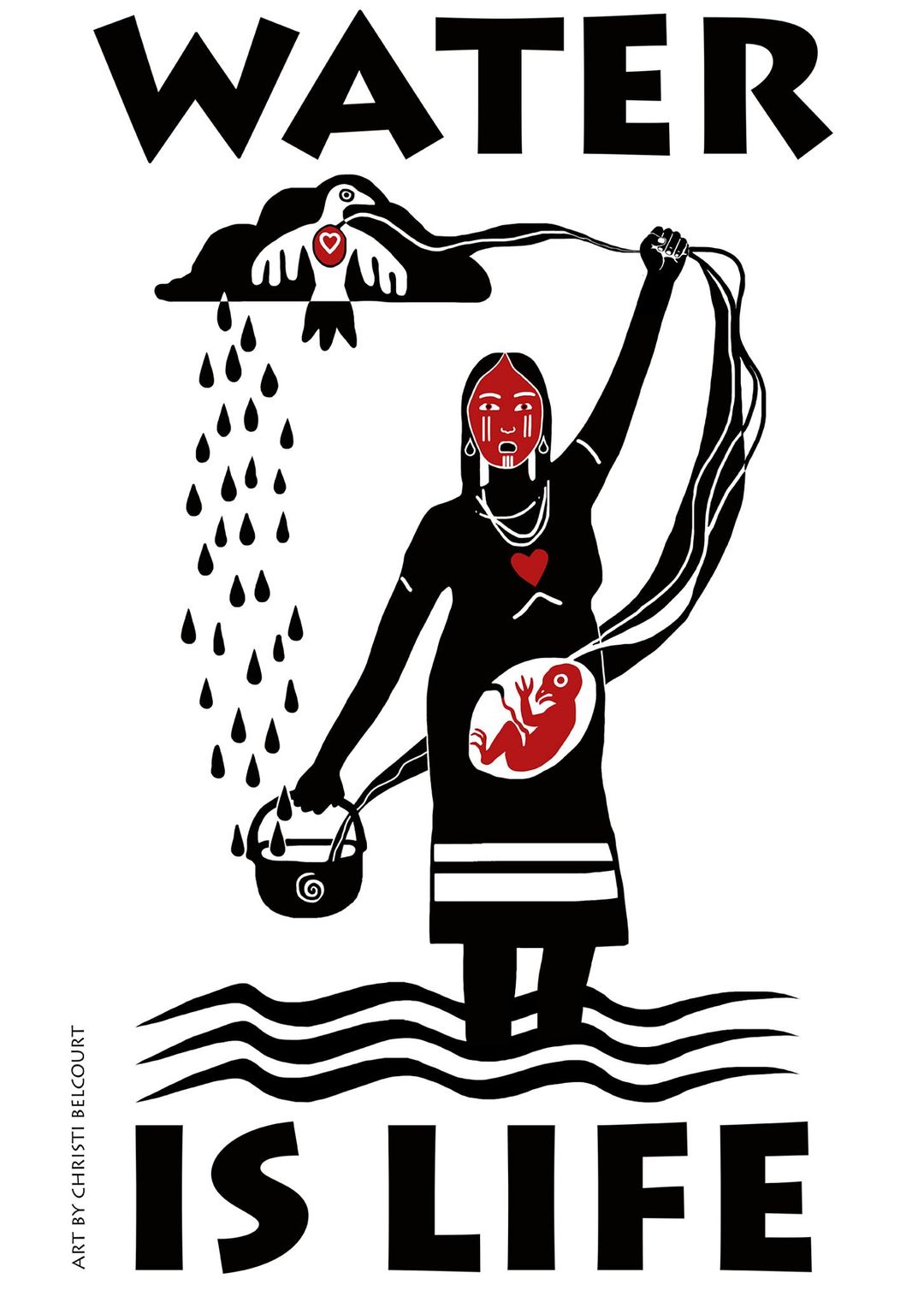Water is Life: Environmental Racism and Indigenous Land Protectors

Art by Christi Belcourt (Métis)
ARC466H1 S
Instructor: Liat Margolis
Meeting Section: L0101
Winter 2026
Global water scarcity maps show Canada as water rich, possessing the world’s third largest freshwater reserves with a relative low risk of water scarcity, while the so-called Global South and arid regions are in focus. Yet, for decades, hundreds of First Nations and Inuit communities face long-term boil water advisories and lack of clean drinking water – a violation of the United Nations recognized human rights to water and sanitation.
The Lakota phrase “Mní wičhóni” (“Water is life”) was the protest anthem from Standing Rock heard around the world. As Potawatomi philosopher Kyle Powys Whyte explains, "water is life" is based in "Indigenous governance systems that support cultural integrity, economic vitality, and political self-determination and the capacity to shift and adjust to the dynamics of ecosystems."
This research seminar examines on one hand, colonialism as a set of interlocking logics and ongoing mechanisms of land dispossession, loss of sovereignty, resource extraction, pollution, and environmentalism; and on the other, Indigenous (women)-led, anticolonial approaches to science and the pursuit of legal standing based on treaties, land rights, and international law to challenge projects that threaten ancestral lands and waterways and defend environmental justice.
We will read from and on a range of (predominantly) Indigenous scholars and water protectors. Students will present regularly in class and will produce a collaborative Digital Atlas using StoryMap (ArcGIS) water pollution (and mechanisms that allow this to occur and persist) and water protectors and guardianship movements in various territories across Canada (and the US).

